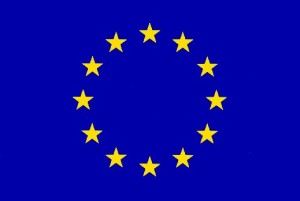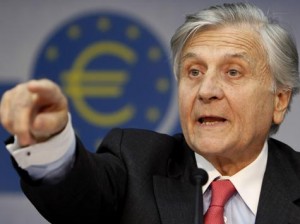 The news of late has been full of images of growing chaos in the “cradle of democracy.” This week in Athens, crowds of angry stone-throwing citizens chanting, “Traitors, traitors!” have confronted police in riot gear, who have responded with tear gas, while public employee unions announced a 48-hour general strike in advance of a crucial parliamentary vote. The protesters directed their rage both at the government and at international financial agencies, especially the European Union [EU], which have demanded a series of austerity measures in response to Greece’s debt crisis.
The news of late has been full of images of growing chaos in the “cradle of democracy.” This week in Athens, crowds of angry stone-throwing citizens chanting, “Traitors, traitors!” have confronted police in riot gear, who have responded with tear gas, while public employee unions announced a 48-hour general strike in advance of a crucial parliamentary vote. The protesters directed their rage both at the government and at international financial agencies, especially the European Union [EU], which have demanded a series of austerity measures in response to Greece’s debt crisis.
Meanwhile, outside pressure on the Greeks has grown, with foreign observers declaring there is “no plan B” if this combination of austerity and bailout fails, markets swinging wildly on alternate waves of hope and fear, and many commentators concerned that even these programs will not be enough. As I write this article, the Greek parliament narrowly approved its austerity plan in the face of the public’s wrath, averting the possibility of national default, at least for now.
No one disputes that Greece has, after years of generous public spending and indifferent-to-incompetent tax collection, run up such enormous debts that investors no longer believe in the Greek state’s ability to pay them. This is nothing new in the history of the world economy, or even in the history of Greece.
 What gives this Greek tragedy its greater significance is Greece’s participation in the European common currency, the Euro. As a Euro member, the Greeks are not completely masters of their own fate, unless they choose to leave the common currency, which could touch off an even bigger crisis of continental if not global proportions. Greece and its partners in the Eurozone are locked in a fateful embrace. The other Euro members, who last year already committed 110 billion Euros to prop up the Greek economy, are committed to bailing out the Greeks even more, while the Greek public faces a long period of austerity, which will force them to accept significant cuts in a generous welfare state. The Greeks have not taken this very well, to put it mildly. At the same time, the richer EU states, especially Germany, that will be expected to fund the Greek bailout (and potential bailouts for Portugal, Ireland, Spain, and someday perhaps Italy—collectively and colloquially the PIIGS) are facing a restive electorate that does not understand why they may have to pay higher taxes to fund bailouts for their profligate cousins.
What gives this Greek tragedy its greater significance is Greece’s participation in the European common currency, the Euro. As a Euro member, the Greeks are not completely masters of their own fate, unless they choose to leave the common currency, which could touch off an even bigger crisis of continental if not global proportions. Greece and its partners in the Eurozone are locked in a fateful embrace. The other Euro members, who last year already committed 110 billion Euros to prop up the Greek economy, are committed to bailing out the Greeks even more, while the Greek public faces a long period of austerity, which will force them to accept significant cuts in a generous welfare state. The Greeks have not taken this very well, to put it mildly. At the same time, the richer EU states, especially Germany, that will be expected to fund the Greek bailout (and potential bailouts for Portugal, Ireland, Spain, and someday perhaps Italy—collectively and colloquially the PIIGS) are facing a restive electorate that does not understand why they may have to pay higher taxes to fund bailouts for their profligate cousins.
This is much more than an economic dispute. It is an existential crisis for the EU. The common currency, once hailed as the crowning achievement of European integration, now appears as its Achilles heel. It is therefore appropriate that this vulnerability is being exposed in Achilles’ homeland.
The Greek crisis has been percolating for more than a year, and has already been elevated to the level of myth and metaphor. In Europe, it has been used by some as proof of the division between a putatively virtuous North and profligate South—a position that ignores, among other things, the complicity of northern investors in pumping up the southern economies. In the ongoing debate over American budget deficits and long-term debt, Rep. Paul Ryan (R-WI) and his colleagues have warned that the United States faces a Greek scenario if it does not pursue preemptive austerity measures of its own—a position that sacrifices understanding the significant differences between Greece and the United States on the altar of rhetoric.
Like all myths, these positions contain kernels of truth. Even leaving aside the myths, however, there is a great deal at stake in Greece, and important lessons for those interested in the development of Europe and its place in the world economy. To help us understand how we got here, and what it all means, a brief history lesson is in order.
 Greece joined what was then called the European Community [EC] in 1981, becoming its tenth member. Membership was a reward to the Greeks for their successful democratic transition after the fall of the military junta in 1974, even though many observers at the time worried that the Greek economy was not up to the same level as the existing members. Indeed, Greece received a great deal of economic support from Brussels in its first decades of membership.
Greece joined what was then called the European Community [EC] in 1981, becoming its tenth member. Membership was a reward to the Greeks for their successful democratic transition after the fall of the military junta in 1974, even though many observers at the time worried that the Greek economy was not up to the same level as the existing members. Indeed, Greece received a great deal of economic support from Brussels in its first decades of membership.
The end of the Cold War and subsequent EC/EU expansion had the ironic effect of making Greece look better economically and politically, since many of the candidates from the East lagged even further behind Greece. Indeed, some expressed skepticism about extending membership to the former Communist states, fearing that Greece would lose access to structural assistance from Brussels.
As the EU began planning for the creation of the Euro, Greece’s place in the plan was unclear. Largely at the instigation of the Germans, who only reluctantly parted with their famously stable Deutschmark, the EU set relatively stringent threshold standards of annual budget deficits and total national debt for Euro members, to protect the value of the common currency. Unable to meet the criteria, Greece did not qualify for the first group of Euro states in 1999, when the currency was introduced in paper transactions. Creative accounting, and increasing political pressure to include more states within the common currency (both to add to the impression of progress in European integration and also the hope that once in, economic convergence among the member states would lead to broader prosperity) allowed Greece to enter the monetary union in 2001, in time for the introduction of physical euro bills and coins in 2002. Even at the time, however, skeptics wondered whether the Greek reforms had actually led to any permanent changes.
 The relative profligacy of the Greek welfare state, its inefficient bureaucracy, chaotic tax system, and powerful unions, were already legendary. The staging of the 2004 Olympic games in Athens—an experience fraught with logistical, financial, and procedural problems, whose cost still burdens the Greek treasury—clearly demonstrated both the glory and the shame of modern Greek society.
The relative profligacy of the Greek welfare state, its inefficient bureaucracy, chaotic tax system, and powerful unions, were already legendary. The staging of the 2004 Olympic games in Athens—an experience fraught with logistical, financial, and procedural problems, whose cost still burdens the Greek treasury—clearly demonstrated both the glory and the shame of modern Greek society.
Taking that historical experience into account, no one should be completely surprised by the current difficulties, even if their extent and significance appears to have outstripped the political class’s ability to manage them.
What are the lessons we can draw from all this?
For Greece, the most painful lesson is the need for a fundamental reform of its fiscal habits, indeed of its politics in general. Even if the country were to leave the Euro and significantly devalue its currency (more on that below), the current crisis has shown that its systems of tax collection and budgeting need to be brought into closer harmony. One need not go in for the moralizing criticisms popular in Berlin to admit that a society which views generous social benefits as a birthright and paying taxes as optional is in serious trouble. (Here one can see a lesson for the United States and other industrialized countries as well, though the balance between spending and taxes is of course open to dispute.) The tragedy is that Greece, despite significant private wealth, has serious problems with income inequality that are likely to worsen in the face of budgetary austerity, creating further potential for political conflict. Whether a feckless and self-interested political class that has avoided making difficult choices for years is up to these challenges is anyone’s guess.
For the European Union the lessons are no less painful. The Euro embodied the technocratic dream behind much of European integration. The hope was that enough practical improvements in their lives would subtly, secretly, but inevitably bring Europeans together, and help overcome national sovereignty without forcing European leaders to ask their people directly if they were prepared to cede national sovereignty to the EU. In its initial stages, the Euro experiment worked beautifully, allowing the smooth movement of goods, services, and investment capital—not to mention tourists—among member states. (It also made possible massive shifts in investment capital to feed bubbles in Irish banks and Spanish vacation homes, with painful results.) The Euro climbed in value, eventually topping the dollar and settling today above $1.40. But what was missing was a common fiscal and political authority. Although the original limitations on debt and deficits were supposed to guarantee stability, in practice the Eurozone had no such protections. Once big states such as Germany began violating the deficit limits with no appreciable penalty in the early 2000s, it was clear that there was no effective mechanism for medium term discipline beyond the threat of eventual default.
The absence of strong federal fiscal institutions left member states free to set taxing and spending priorities according to local political conditions, but a common currency also robbed deficit states of their main traditional tool for dealing with debt—the option of inflating and thus devaluing national currencies. Thus Europe as it now exists is both too weak and too strong: too weak to keep states from running up unsustainable debt until it is too late, and too strong to allow those states to manage their debts individually. The end result is the stark choices of this week: either the other EU states provide massive bailouts to save the Greek economy, and the Greeks embrace massive austerity, or the Greeks will be forced to abandon the Euro. Neither option is particularly appealing, since both threaten to undermine both economic confidence and political support for European integration.
European Central Bank Chief Jean-Claude Trichet recognized this problem when he spoke earlier this month in favor of a common European finance ministry with the power to veto irresponsible budgets of Euro members. That idea was a political non-starter, and is really just another band-aid. A Finance Ministry would be of limited value without a democratically legitimate political authority over it, and would eventually be open to the same criticisms that hit the Euro today. The elephant in the room is the question of whether the EU is ever going to move from its current mixture of intergovernmental and federal elements to become the United States of Europe so long trumpeted by its propagandists.
The lack of consensus on political integration has always undermined the idea of a common currency that as European glue. Some wealthy states (Great Britain, Sweden, and Denmark, for example) could qualify economically to join the Euro, but have been reluctant to give up their national currencies, though Sweden recently signaled a willingness to take the step. On the other hand, weaker economies, such as Greece and Italy, used short term accounting tricks to appear ready while masking deeper problems. The Eurozone today includes only seventeen of the twenty-seven current members of the EU, which helped lead to political confusion in this crisis. All the states of the EU are worried about weakness in the European economy, but only those states that participate in the Euro directly are on the hook for bailouts. That is corrosive to any solidarity within the EU, and does not bode well for the future.
Since the Treaty of Rome in 1957 created the European Economic Community, the EU has grown from six to twenty-seven members, with several candidates still waiting in the wings. There have been periods in which membership was stable—between 1957 and 1970, or 1986 and 1994, for example—but since the first expansion of the community in 1970, the bias has been in favor of adding members as a way to display progress, even as additional members have made the creation of a federal Europe that much more difficult. Integration has proceeded in fits and starts, with bold plans often stopped by opposition from one of the member states. The lack of clear leadership has managed to undermine public awareness of the actual benefits the EU has provided. And make no mistake; despite the sometimes-shrill criticisms of Euroskeptics about undemocratic Brussels, the benefits of EU membership have far outweighed the incremental loss of national sovereignty. But it has not bought the EU any love. Furthermore, neither obstruction nor incompetence has had any real consequences. Once in, no state has ever been seriously threatened with expulsion, no matter how obstructionist it may have been, and no state has voluntarily withdrawn, no matter how much it has complained and undermined economic and political integration. That may change in the future, but for the past fifty years, being an EU member means never having to say you are sorry.
For many European leaders and even more scholars, who have been skeptical about the need for strong federal European governance and have praised the decentralized nature of the EU and its soft power, this is no tragedy, and might even be a virtue. But one wonders how much longer Europe can count on integration by autopilot. The lack of charismatic leadership within Europe during this crisis has been glaring, as putative heavyweights such as Angela Merkel and Nicolas Sarkozy, while managing a series of joyless compromises, have tempered their enthusiasm for Europe with an eye toward their own angry constituents. A few retired veterans of European battles past, such as Helmut Kohl and former German foreign minister Joschka Fischer, have appealed to the European spirit, but these exceptions only reinforce the general impression that the EU has many clients, and many managers, but few friends and fewer lovers. European integration is one of the great success stories of the postwar era, but it is in danger of collapsing under the weight of public protest and elite apathy. This is the slow motion tragedy playing out behind the dramatic images of Greek protesters.










Leave a Reply